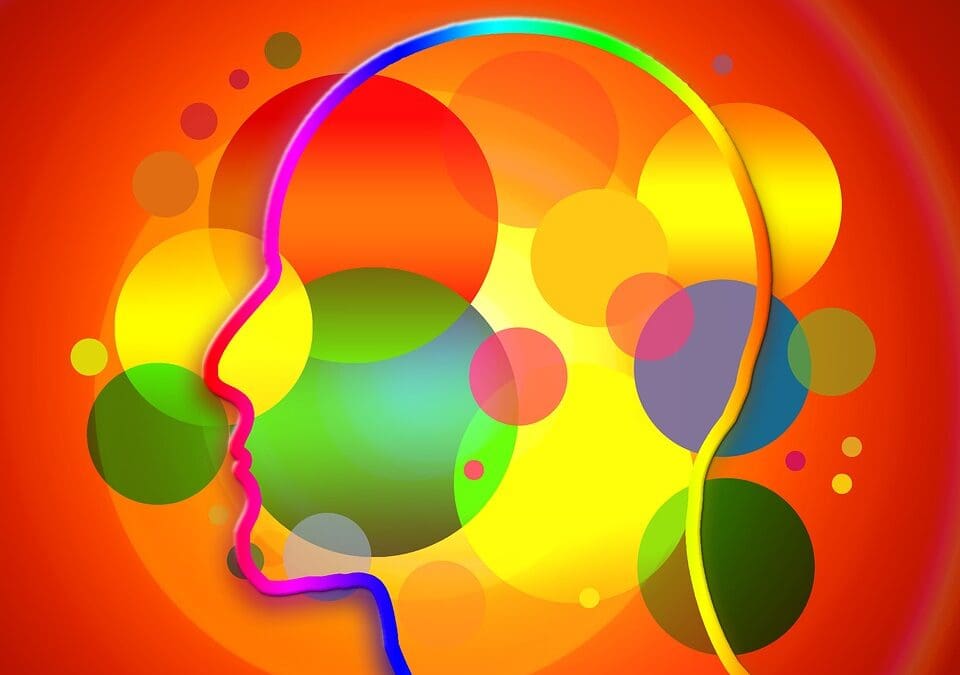
by Dr Suresh | Oct 15, 2023 | DBT Therapy
[ad_1]
DBT: The Breakthrough in Mental Health Treatment That’s Revolutionizing the Field
Mental health conditions are pervasive, affecting millions of individuals around the world. These conditions can undermine one’s quality of life, relationships, and overall well-being. Fortunately, there have been significant advancements in mental health treatment in recent years. One approach that has gained considerable attention and recognition for its remarkable effectiveness is Dialectical Behavior Therapy (DBT).
DBT is a type of cognitive-behavioral therapy that was originally developed in the late 1980s by psychologist Marsha M. Linehan. Initially, DBT was designed to treat individuals with Borderline Personality Disorder (BPD) who were struggling with chronic self-harm and suicidal behaviors. However, it quickly became apparent that DBT’s principles and techniques could be beneficial for a wide range of mental health conditions.
What sets DBT apart from other treatment modalities is its integrative approach, blending various therapeutic techniques to enhance the effectiveness of treatment. This approach emphasizes the importance of validation, acceptance, and active change simultaneously. Dialectics, or the premise that two opposite ideas can both be true, is a foundational principle of DBT, which helps individuals develop a more balanced perspective on themselves and their experiences.
Core components of DBT include individual therapy, group skills training, phone coaching, and therapist consultation teams. Individual therapy sessions allow clients to work directly with a therapist, explore their emotions, develop coping strategies, and set goals for treatment. Group skills training, on the other hand, provides an opportunity for individuals to learn and practice new coping skills, such as mindfulness, distress tolerance, emotion regulation, and interpersonal effectiveness.
Phone coaching serves as a support system between therapy sessions, allowing clients to reach out to their therapist during crises or moments of distress. The therapist consultation team functions as a support network for clinicians, ensuring they receive ongoing supervision and support to deliver quality DBT treatment.
Research has consistently demonstrated the effectiveness of DBT in treating a wide range of mental health conditions beyond BPD. It has proven highly successful in addressing depression, anxiety disorders, substance use disorders, eating disorders, post-traumatic stress disorder (PTSD), and self-destructive behaviors like self-harm and suicidality.
Within the field of mental health, DBT has become a game-changer. Its person-centered approach and emphasis on building skills to manage distress have transformed treatment outcomes. Many individuals who previously felt hopeless or unheard now have access to a comprehensive therapeutic approach that acknowledges and addresses their unique struggles.
Moreover, DBT’s widespread adoption has prompted the development of specialized programs in clinical and research settings, allowing for further refinement and expansion of the therapy. As a result, treatment providers are becoming increasingly skilled in delivering DBT, ensuring its accessibility to a greater number of individuals seeking help.
DBT’s breakthrough lies in its ability to combine elements of acceptance and change, offering clients the tools to develop a life worth living. By cultivating acceptance of oneself and the situations they face while simultaneously fostering strategies for change, DBT empowers individuals to build a fulfilling, meaningful life while actively managing emotional challenges.
The revolutionizing impact of DBT on mental health treatment cannot be understated. Its success has paved the way for other innovative therapies and provided individuals with hope for recovery and improved well-being. As the demand for evidence-based mental health treatment continues to grow, DBT remains at the forefront, leading the charge for a more compassionate and effective approach to mental health care.
[ad_2]

by Dr Suresh | Sep 25, 2023 | DBT Therapy
[ad_1]
Dialectical Behavior Therapy (DBT) is a form of psychotherapy that is revolutionizing mental health treatment. Developed by psychologist Marsha M. Linehan in the late 1980s, DBT was initially designed to treat individuals with borderline personality disorder (BPD). However, it has since been adapted to address a wide range of mental health challenges, including depression, anxiety, substance abuse, and eating disorders.
What sets DBT apart from other therapeutic approaches is its emphasis on striking a balance between acceptance and change. This balancing act is encompassed by the term “dialectical,” which refers to the integration of seemingly opposing concepts. In DBT, individuals learn to accept themselves as they are while also working towards change and growth.
One of the core components of DBT is mindfulness. Mindfulness involves being fully present in the current moment and observing without judgment. By practicing mindfulness, individuals can develop an increased awareness of their thoughts, emotions, and physical sensations. This heightened awareness enables them to better regulate their emotions and make more conscious choices.
Another crucial element of DBT is skills training. DBT focuses on teaching specific skills to enhance emotional regulation, interpersonal effectiveness, distress tolerance, and mindfulness. These skills aim to improve coping mechanisms and enable individuals to respond more effectively to challenging situations. With practice, these skills become integrated into daily life, empowering individuals to navigate their emotions and relationships with greater effectiveness.
DBT also incorporates individual therapy sessions, during which the therapist works collaboratively with the individual to identify and target specific problem areas. Additionally, individuals attend DBT skills training groups, which provide a supportive and validating environment for learning and practicing new skills.
Perhaps one of the greatest strengths of DBT is its inclusivity. Traditional therapy often assumes that individuals possess a certain level of emotional stability and can engage in therapy effectively. However, many individuals with mental health challenges, especially those diagnosed with BPD, struggle with emotional dysregulation and impulsive behaviors that hinder typical therapy progress. DBT addresses this issue by prioritizing stabilization and developing skills for emotional regulation and distress tolerance before delving into deeper therapeutic work. This approach ensures that individuals receive the necessary tools and support to effectively engage in therapy and make meaningful changes.
Numerous studies have demonstrated the effectiveness of DBT in improving the overall well-being of individuals with various mental health conditions. The therapy has been shown to reduce self-destructive behaviors, suicide attempts, hospitalizations, and substance abuse, while also improving social and occupational functioning.
DBT’s success in revolutionizing mental health treatment is attributed to its ability to combine acceptance and change, its focus on skills training, its inclusivity, and its evidence-based effectiveness. By equipping individuals with the necessary tools to regulate their emotions, engage in healthy relationships, and navigate life’s challenges, DBT has proven to be a transformative therapeutic approach.
In a world where mental health concerns continue to rise, DBT stands as a beacon of hope. By promoting self-acceptance, teaching practical skills, and fostering growth, this revolutionary therapy is providing individuals with the tools they need to live more fulfilling and meaningful lives. As more mental health professionals adopt DBT, its impact on transforming mental health treatment is bound to continue growing, offering hope and healing to countless individuals in need.
[ad_2]

by Dr. Chris Garcia | Jun 14, 2023 | DBT Therapy
[ad_1]
Radically Open Dialectical Behavior Therapy (RO-DBT) is a new approach to mental health treatment that is gaining popularity among clinicians and patients alike. This innovative therapy was developed by Dr. Thomas Lynch, a clinical psychologist from the United Kingdom, and it is based on the principles of Dialectical Behavior Therapy (DBT).
DBT is a therapeutic approach that was developed in the 1980s by Dr. Marsha Linehan. This form of therapy is primarily used to treat people who have borderline personality disorder (BPD). However, it has also proven to be effective in treating other mental health conditions, such as depression, anxiety, and substance abuse.
RO-DBT, on the other hand, was developed specifically to treat individuals who have emotional over-control, or an excessive need for control in their daily lives. This need for control often leads to social isolation, rigid behaviors, and problems with social and emotional functioning. RO-DBT focuses on teaching patients how to be more open, vulnerable, and flexible in their interactions with others.
The goal of RO-DBT is to help patients become more open and flexible in their behavior, which in turn can help them improve their relationships and overall quality of life. This involves practicing skills such as emotional expression, being open to feedback, and accepting uncertainty.
RO-DBT differs from traditional DBT in several ways. First, it utilizes a more structured approach, with specific protocol and training guidelines for therapists. Second, it places a greater emphasis on social signaling and the importance of social connection in mental health. Finally, it addresses the issue of excessive need for control differently than traditional DBT.
RO-DBT uses a combination of individual and group therapy sessions, along with skill-building exercises, to help patients develop the skills they need to become more open and flexible. Patients are taught mindfulness, self-awareness, problem-solving, and distress tolerance skills, which can help them better manage their emotions and respond to difficult situations more effectively.
One of the key components of RO-DBT is the use of skills training classes, which are taught in a group setting. These classes are designed to help patients learn the skills needed to become more open and flexible, and they focus on topics such as social signaling, emotional expression, and problem-solving.
Overall, RO-DBT is a promising new approach to mental health treatment that offers hope to individuals who struggle with emotional over-control and other mental health issues. Its focus on social signaling and the importance of social connection is particularly relevant in today’s world, where many people are feeling isolated and disconnected due to the COVID-19 pandemic. With its structured approach and emphasis on skill-building, RO-DBT has the potential to become an important tool in the fight against mental illness.
[ad_2]



